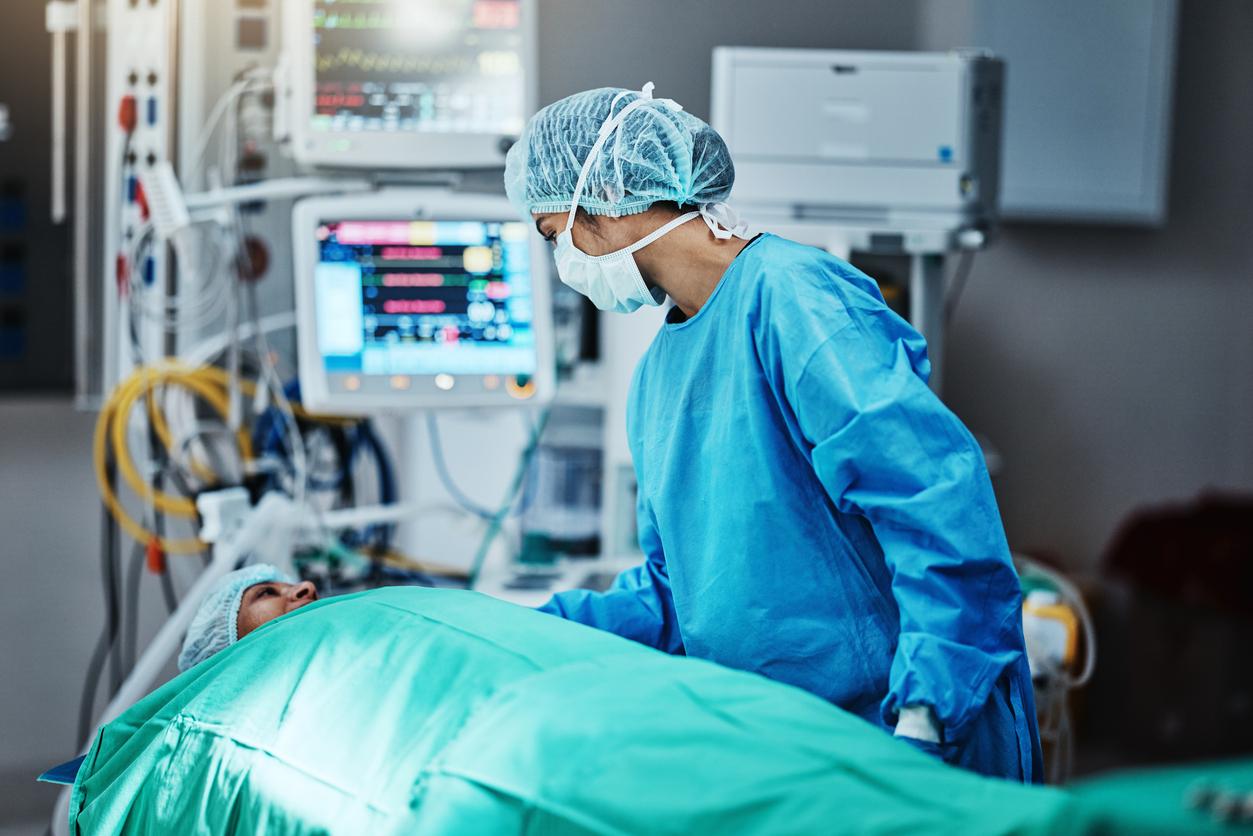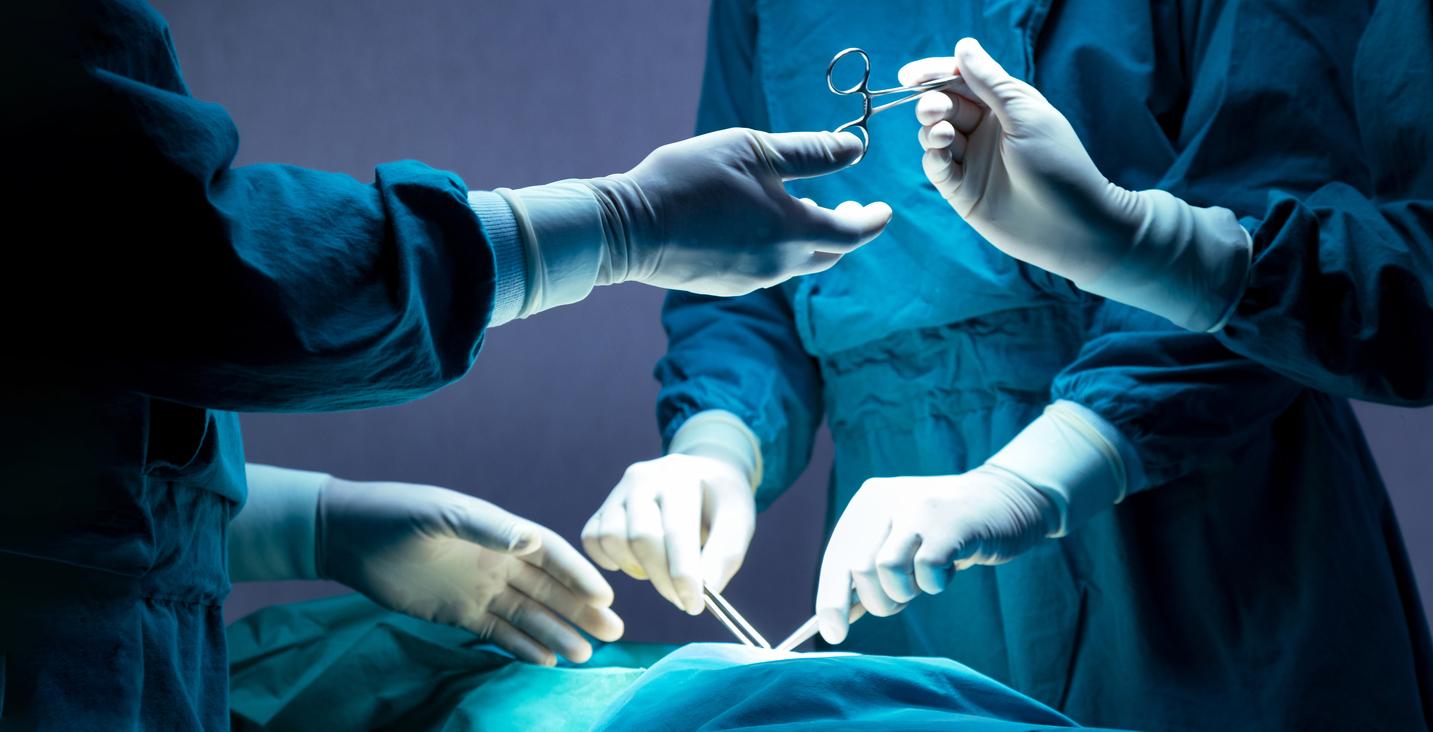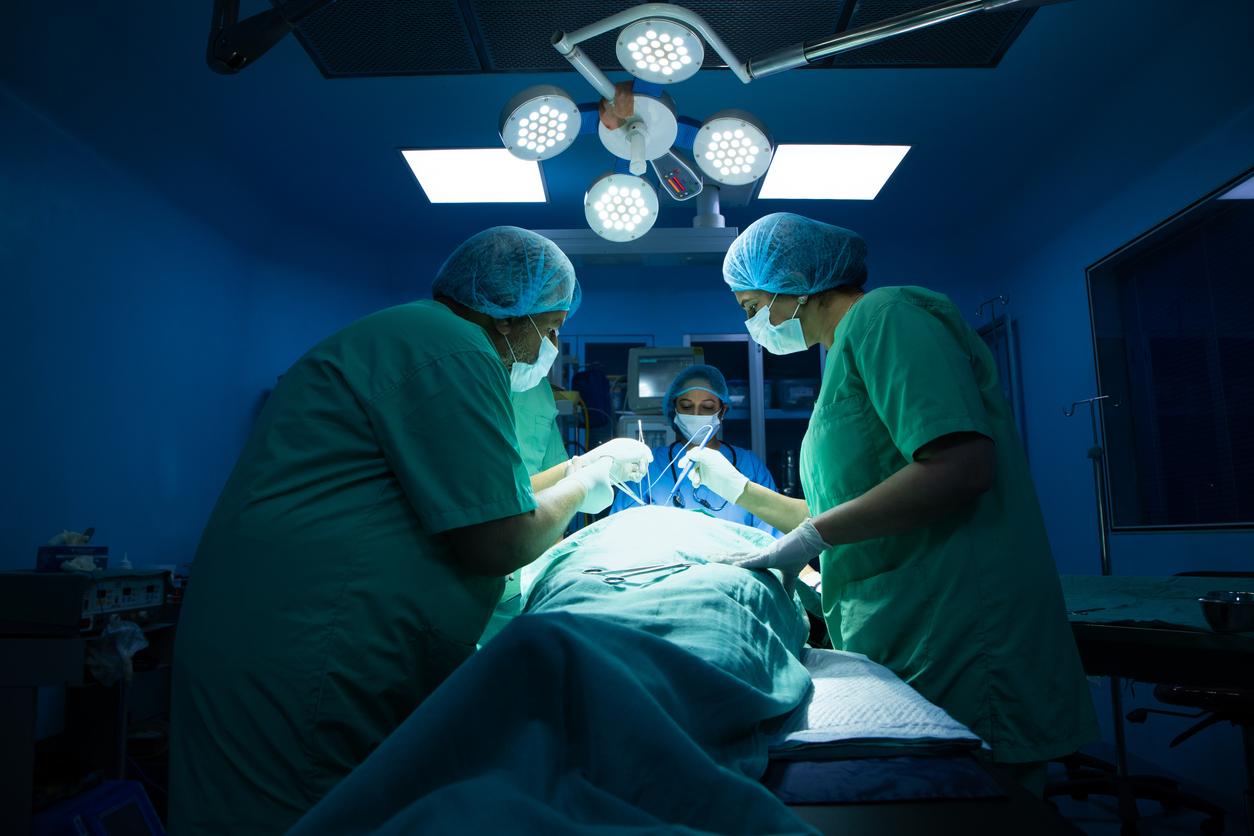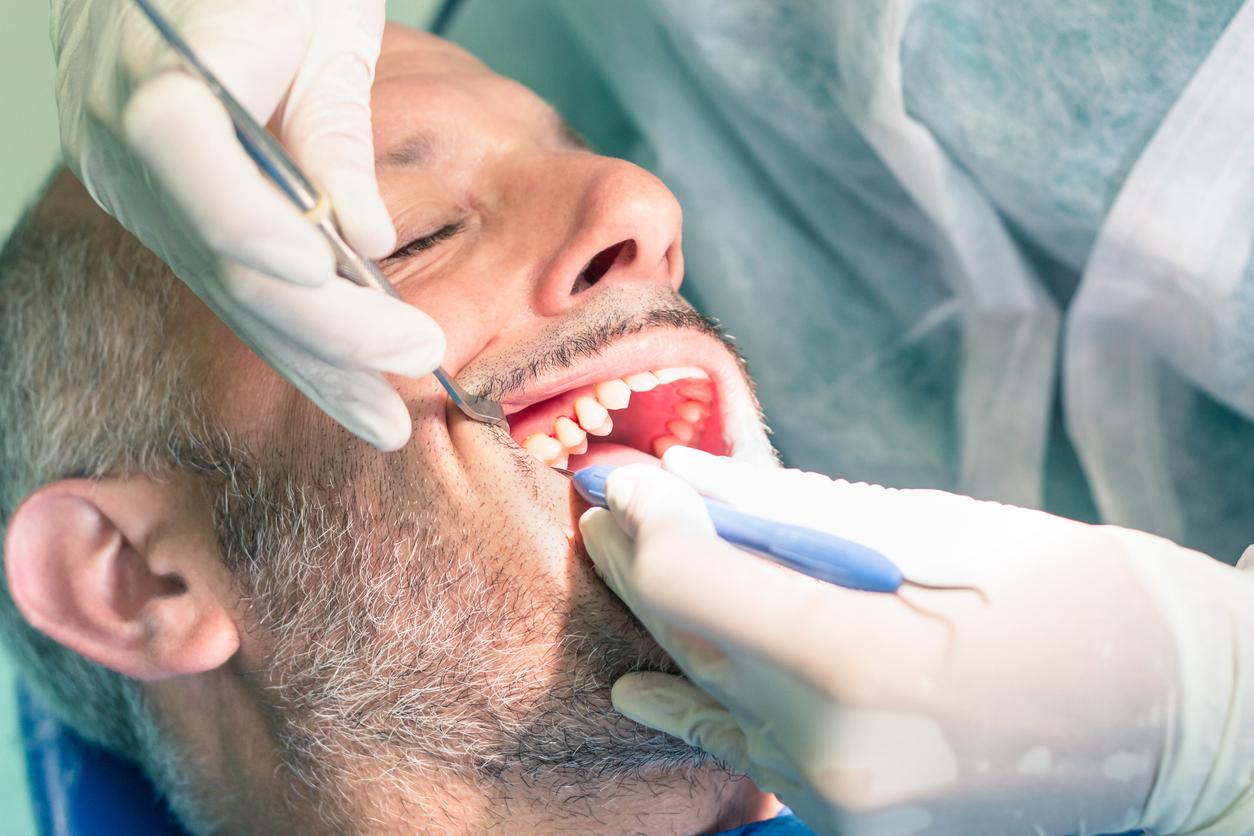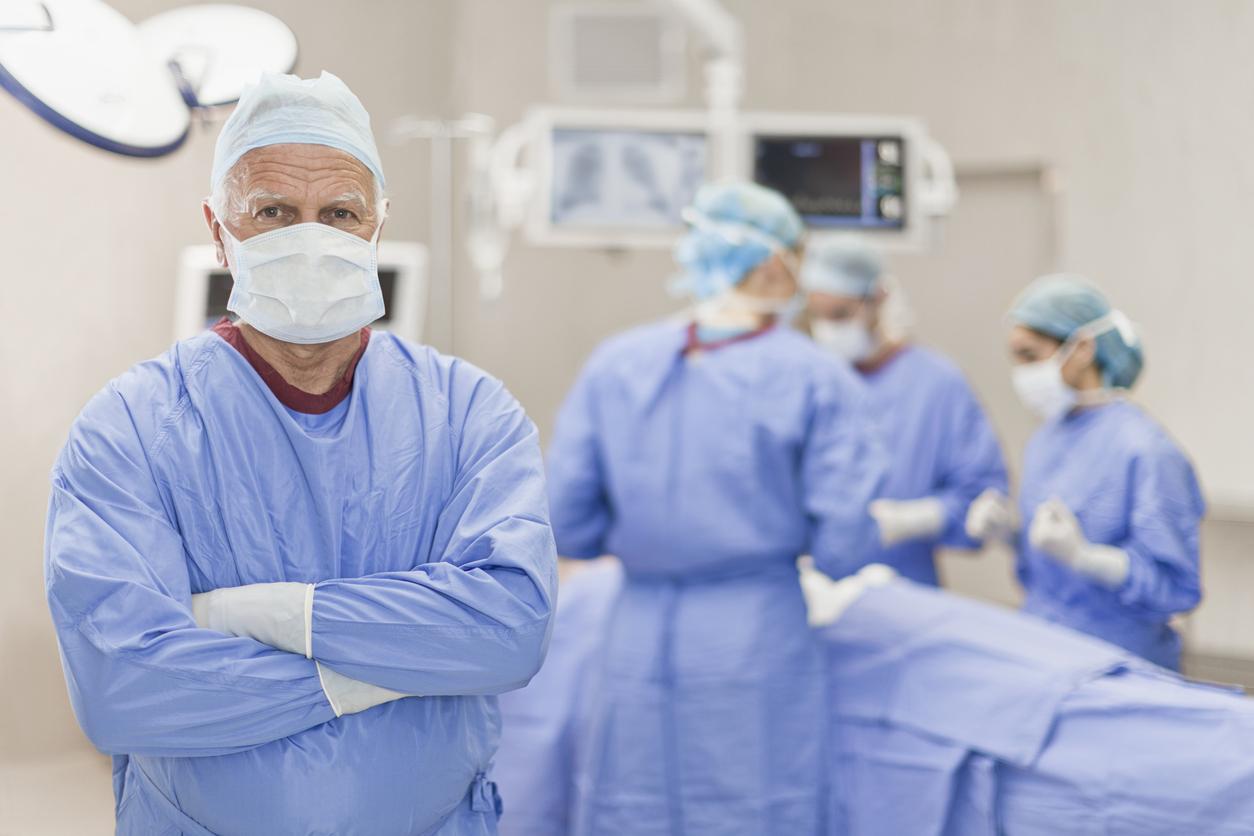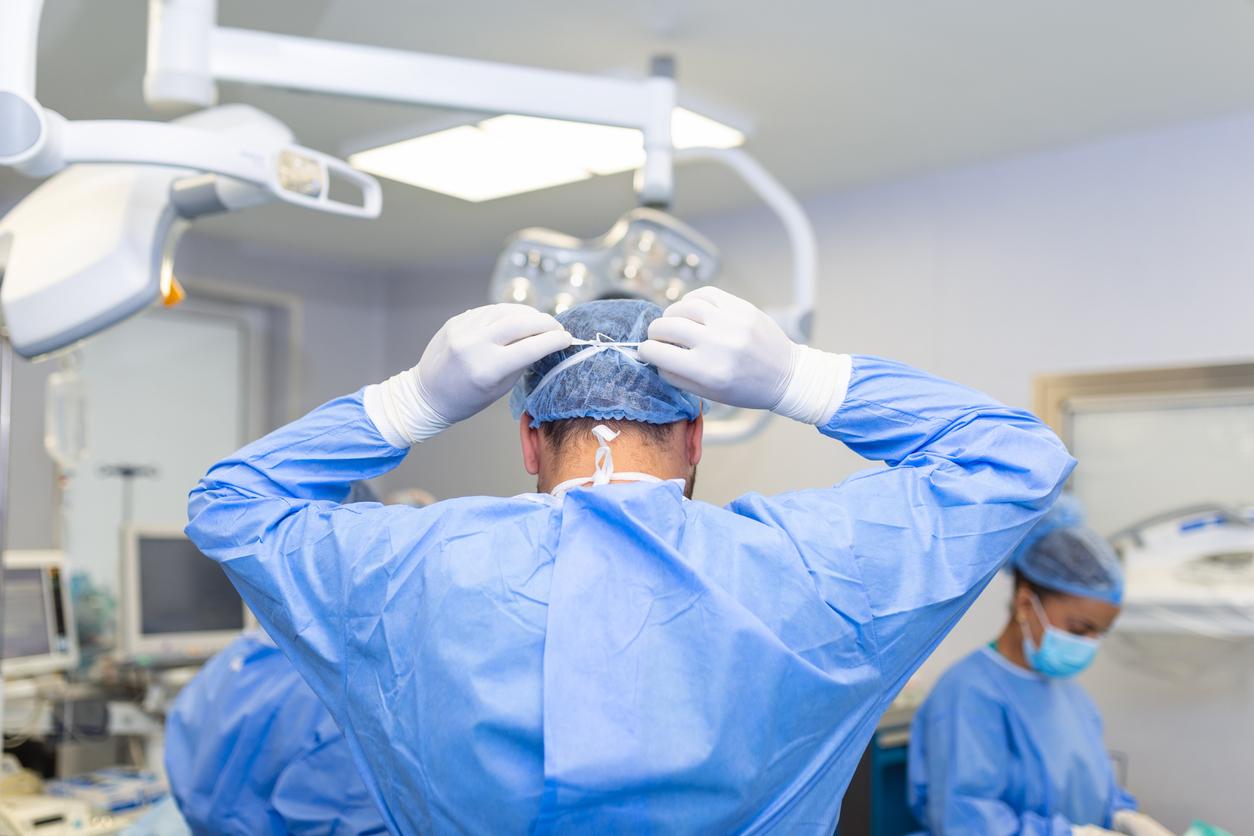During surgery or chemotherapy, your body has to perform at its best. Those in good condition will recover faster and have less chance of complications. And you can do a lot about that yourself.
“I’m training for my surgery.” According to physiotherapist Jaap Dronkers of the Gelderse Vallei Hospital in Ede, it should be the most normal thing in the world: working on your condition in order to appear as fit as possible in the operating room.
The practice is different. People who have to undergo major surgery, chemotherapy or radiation often take it easy. “Then I’ll be well rested when I go under the knife,” they say. Concerned relatives coddle the patient. “Sit down, I’ll make some coffee.”
Well-intentioned, but it backfires. “Taking everything off someone’s hands before an operation is the worst thing you can do for his condition,” says Dronkers. He conducts research into preoperative physiotherapy: a new form of physiotherapy that helps people to become fitter, so that they can start heavy medical treatments in good condition.
A good condition before surgery is important, because it significantly improves the chance of a smooth recovery. This insight has been known for some time, but it is only recently that something has actually been done with it in hospitals. “That has to do with the technical thinking of medical professionals,” says Dronkers. “Surgeons mainly focus on the procedure itself. But it is now clear that an operation is a gigantic attack on your body. This also applies to heavy treatments such as chemotherapy or radiation. Your whole system is going to take a hit.”
Dronkers compares open-heart surgery, major abdominal surgery or chemotherapy with top sports performance. Dronkers: “Such an operation demands just as much from your body as running a marathon. You have to prepare for that as well as possible, so that you have enough reserves to recover. You don’t tell a marathon runner that he needs to rest a lot, do you?”
less tired
Recent research has shown that a good condition before surgery significantly reduces the risk of complications after surgery. For example, vulnerable people undergoing open-heart surgery are more than half as likely to develop pneumonia or bronchitis if they train their respiratory muscles for twenty minutes a day prior to the procedure. They also spend an average of one day less in hospital.
Also for abdominal and hip operations, training before the operation seems to have a positive effect on the later recovery. This mainly concerns fitness training. And there are strong indications that cancer patients who train before and during radiation or chemotherapy not only recover more quickly from the heavy treatment, but also have less chance of severe fatigue.
The Integrated Cancer Centers of the Central Netherlands and Limburg started a study this year into the effect of exercise before and during treatment in people with breast or colorectal cancer. Training before surgery is especially important for frail elderly. drunks:
“You can drag a 34-year-old who gets into a car accident through surgery. He has enough reserves to absorb the blow. A fit person over the age of 65 usually withstands an operation well.
But in a frail older person, the damage does not repair itself.” When you’re old, you have less spare capacity, and that’s even more true when you’re sick. Dronkers: “The elderly have less muscle mass than young people. When they are sick, their muscle mass is broken down even faster. Especially if they don’t move much and eat poorly.” Older people who end up on the operating table in poor condition not only recover more slowly, they also have a higher risk of avoidable complications such as bedsores and pneumonia.
Because they have no reserves left after the operation, it is often difficult for them to get out of bed. Staying in bed for a long time is disastrous for recovery. A week in bed can mean a 15 percent loss of muscle strength. Bed rest also affects other systems in the body: the blood circulation works worse and you are more likely to get infections.
This can have dramatic consequences for daily functioning: of all people over 70 who end up in hospital, as many as 30 percent have lost the ability to perform daily activities such as shopping, vacuuming and washing themselves after returning home.
Pain is no excuse
The good news is that such a decline is easy to prevent: by exercising regularly before surgery. The time for this is often limited, especially if you have to be operated on quickly. That is why it is important to ensure that you are in good shape at all times.
In the Gelderse Vallei, all elderly people who have to undergo major surgery are screened. People who belong to the risk group receive several weeks of preoperative training from Dronkers and his colleagues. The Gelderse Vallei is leading the way, but more and more hospitals are offering preoperative training to ensure that you can get out of bed quickly after surgery. Strength and endurance are especially important. Dronkers: “With half an hour of strength training three times a week, your muscle strength can increase considerably within three weeks.”
If you are not used to moving, don’t be alarmed. You don’t have to lift heavy weights at the gym to survive surgery. “Often simple exercises that you can do at home are sufficient. For example, getting up from your chair a few times a day with a weighted vest. You can also lift weights, but exercises that you can incorporate into daily activities often last longer.” Pain should not be an excuse not to move, says Dronkers. “There is usually something to do with painkillers.”
Fit elderly people do not need to do special training for surgery. Dronkers: “Make sure you get enough exercise every day. That has more effect than running through a forest with your tongue on your shoes once a week.” Any physical effort of more than ten minutes where your breathing speeds up and your heart starts beating faster means a boost for your body.
“It’s not that complicated. Climbing stairs, for example, is excellent for keeping your thigh muscles in shape. Everyday life offers countless opportunities to work on your fitness: a brisk walk with the dog, shopping on the bike, mowing the grass.”
Proteins and vitamins
However, exercise alone is not enough to go under the knife in optimal condition. “It’s about the combination of exercise and good nutrition,” says dietician Elles Steenhagen of UMC Utrecht. Major surgery puts stress on your metabolic system, she explains. “That means that your body breaks down more proteins. You need them, among other things, to provide building materials for your immune system and for wound healing.” The body gets those proteins from the muscles: not only from your arm and leg muscles, but also from your respiratory and heart muscles.”
In order to recover properly, it is important to limit that protein deficiency as much as possible. This can be done by moving, eating and drinking again soon after the operation. But also by ensuring that your nutritional status is good before the operation. Steenhagen: “You should not only get enough protein, but also vitamins, fat and carbohydrates.” Fat and carbohydrates are fuel for your body: they provide energy. If you don’t have enough fuel, you will break down proteins. “You have to prevent that, both before and after the operation,” says Steenhagen.
According to the Nutrition Center’s Wheel of Five, it is sufficient for healthy people with a good weight to eat a varied diet. Steenhagen: “Because your body composition changes as you get older, you need less energy, but you still need the same amount of vitamins and proteins.
That means that you have to eat very good quality to maintain your nutritional status.” But you don’t have to eat before surgery. “Some people think they build up extra reserves by eating more. That is not true. If your nutritional status is already good, it won’t get better if you eat more.”
However, it is advisable to continue to eat and drink until shortly before the operation. For years, the rule was that you were not allowed to eat or drink from midnight until the operation. This was once established because doctors were afraid that food and fluid would end up in the lungs during the anesthesia. Steenhagen: “We now know that eating and drinking until just before the operation has major advantages. It contributes to a good nutritional status and you stimulate the motility of the stomach. This reduces the chance that fluid or food will enter the lungs.”
The national guideline on nutrition during surgery, which has been in force for three years, states that patients can eat solid food for up to six hours before surgery and drink clear liquids for up to two hours. “It would be even better if you didn’t have to sober up for surgery at all, but it will be a while before that becomes the rule.”
Start on time
Sick people have to pay extra attention to their diet and weight before an operation. Because they run a high risk of ending up malnourished on the operating table. Of all patients who ended up in hospital last year, as many as a quarter were malnourished on admission and almost 50 percent had an increased risk of malnutrition.
“Often these are sick, older people,” says Steenhagen. “Because they are sick, they eat and drink little. In addition, most elderly people drink poorly anyway because they feel less thirsty. That makes them extra vulnerable.”
Contrary to what many people think, when you are sick, your body needs not less but more energy and proteins. Steenhagen: “People sometimes ask me: ‘Why should I eat more, I hardly consume anything. I’m in bed, aren’t I?’ But when you’re sick, your metabolism works differently. In healthy people, the internal heater turns on a lower setting when they eat less. It remains on the high setting for the sick, even if they consume less. As a result, they become malnourished more quickly.”
In the UMC Utrecht, but also in most other hospitals, the elderly are screened for malnutrition before surgery. Those who are malnourished or have a poor nutritional status are given a protein and energy-enriched diet. For example, extra meat, fish and dairy products, generous spreads on bread and no lean products, but semi-skimmed and full-fat products.
Steenhagen: “You have to be there on time, because refeeding takes seven to ten days.” That is why she advises sick people who need surgery to have themselves screened for malnutrition at the GP or home care. This can be done via a simple questionnaire with two or three questions.
“Don’t just do that if you’re skinny. Weight isn’t everything. Such a screening is also advisable for overweight people who have lost a lot of weight due to their illness.” They are often overlooked when it comes to malnutrition. For example, the doctor says, “You have enough reserves to withstand the surgery.” But if you are seriously ill and lose a lot of weight, you are always at risk of becoming malnourished. “That’s because you break down your protein mass during illness,” says Steenhagen. “What you are left with is fat mass. It’s not much use in surgery. You just need muscle mass.”
Fitness testing
Vulnerable elderly people can also have their fitness tested well before the operation with a physiotherapist in the hospital or in a health center. “Preferably someone who has experience with preoperative physiotherapy, because by no means all physiotherapists are equipped for this,” says Dronkers.
Look, then the long waiting times for many operations still have a function: all the time to get your body in optimal condition.
Sources):
- Plus Magazine









